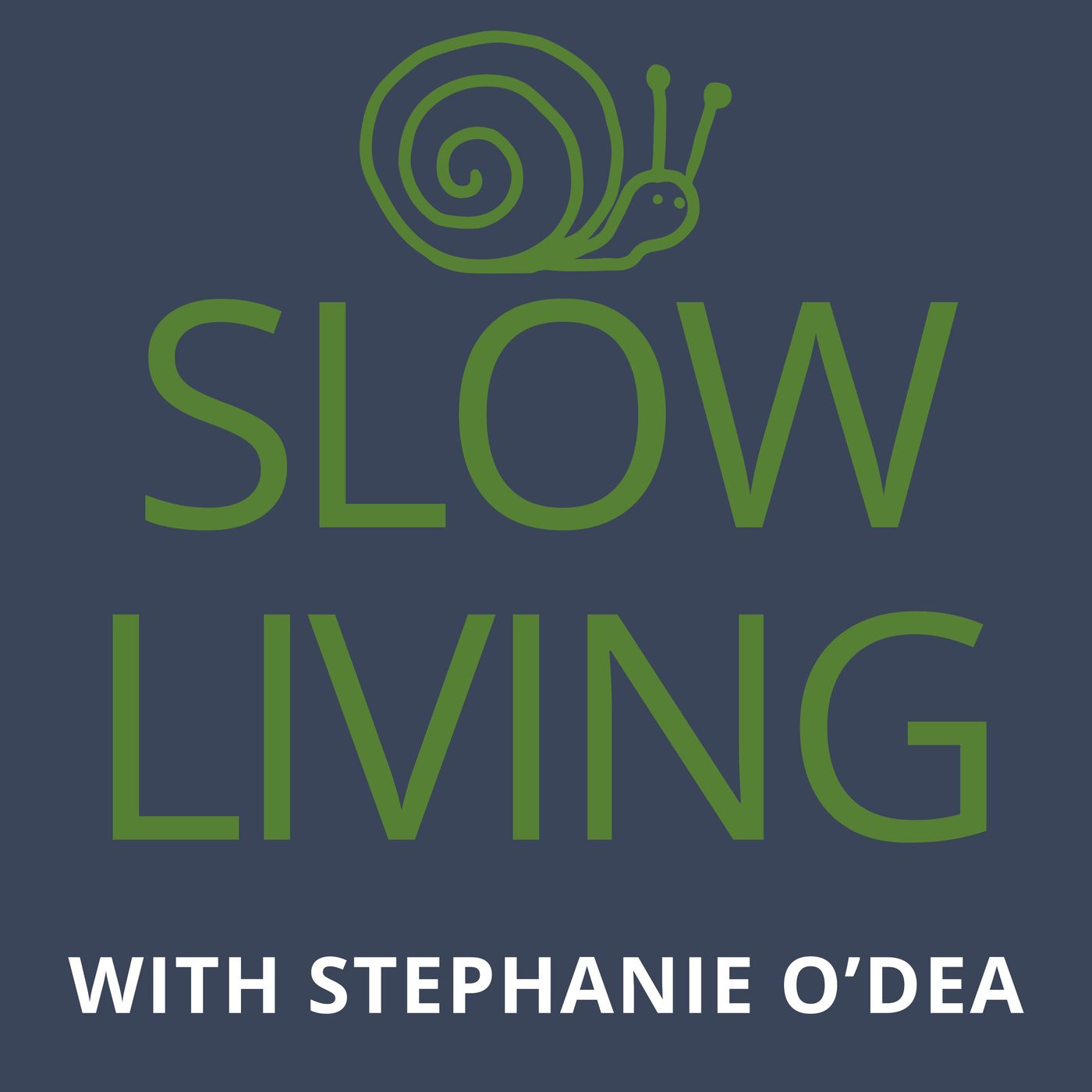
The Self-Help Podcast with Deepali Nagrani
Hi, I’m Deepali — a speaker, storyteller, and proud mom to a wonderful one-year-old. I live in Victoria, BC, Canada, hands down the best place to live!
For as long as I can remember, I’ve been drawn to public speaking. It lights me up in ways I can’t quite explain. I’ve always sought the stage, longing for a space to say something that matters.
Then one day, I realized: if you can’t find a stage, build one.
This podcast is that stage. It was born not just from my love of words, but from one of the hardest chapters of my life. At 32, after one of the toughest chapters of my life, I discovered something worth sharing: my voice, reshaped by truth and tenderness.
Here, I speak from the messy middle of motherhood, healing, identity, fear, hope, and everything in between. It’s not perfect, but it’s real. If you’re craving something genuine, something that feels like a deep breath — you’re in the right place.
Let’s speak the truth. Let’s find meaning together.
Welcome to the stage I built from the feeling of always wanting to be on one.
I’m so glad you’re here.
The Self-Help Podcast with Deepali Nagrani
5 ways to get rid of Impostor Syndrome
We dismantle imposter syndrome with five practical tools shaped by lived experience, from naming the feeling to shifting from self-focus to service. Stories of interviews, tech glitches, and immigrant pressure show how progress, evidence, and purpose restore confidence.
• naming imposter syndrome to create distance
• redefining success as progress not perfection
• reframing failure as feedback
• building a brag file to store evidence
• normalising discomfort as a growth signal
• shifting from me to service in meetings and talks
• practical examples: frozen slides, shaky voices, immigrant expectations
• recap of five tools and how to use them
Thank you for spending this time with me.
And if this episode resonated with you, make sure to share it with your friends, follow for more conversations like this.
You are meant to shine,please don't let the impostor syndrome tell you otherwise.
💛 Thank you for being here.
If something in this episode spoke to you, I hope you carry it with you — or share it with someone who might need it too.
I'd love to hear your story, your thoughts, or just how you're feeling after listening. Reach out anytime at deepalinagrani23@gmail.com
🌐 For more stories, resources, downloadable freebies please visit:
www.deepalinagrani.com
🕊️ This is just the beginning.
Take care of your body. Be gentle with your heart. And never forget — your story matters.
Have you ever walked into a room or maybe onto a zoom call, looked around and thought, What am I doing here? Or maybe you got a promotion, an opportunity, or even praise for your work, and your first instinct was, Huh, they must have made a mistake. And they are going to find out that I'm not good enough. If you have ever felt this way, you're not alone. What you're experiencing is called the imposter syndrome, and studies show that up to 70% of people will feel it at some point in their lives. Yes, that's a massive number, 70%. Which means it's just not you and me, it's almost everyone. Welcome back to the self-help podcast. I am your host, Dipali, and this is where we dive into the messy real side of personal growth through stories, mindset shifts, and practical tools that you can actually use in everyday life. We're talking about something that that almost everyone struggles with, but rarely admits it out loud. Imposter syndrome. Trust me, I know this. I know what it feels like as an immigrant, as a woman, as someone who grew up not feeling good enough. I often found myself shrinking in spaces where I should have been shining, and yet those feelings weren't always telling me the truth. So today we're diving into diving deep actually into five powerful practical ways to get rid of the imposter syndrome. Or at least shrink it down so it no longer runs the show. I'll share real stories, examples, and exercises that you can try in your everyday life. And by the end of this episode, my goal is for you to walk away not only with clarity but with a lot of confidence that you do belong, that you're capable, and you deserve the seat at the table that you've worked so hard for. In recording this episode, I'm also reminding all of this to myself. There are days where I still wake up feeling what am I doing and why am I doing this, and I still don't feel good enough in this area, and there are people who are doing better than me. But honestly, I often fall as a victim to this situation or to this mentality. But I want to get rid of this, and I have worked really, really hard in few areas of my life to never feel this way. So let's get started. Step one is deceptively simple. Just name it. When you're in the middle of an imposter spiral, like you're in a meeting and your brain is shouting, you're not smart enough to contribute here. The worst thing that you can do is treat that your voice is like truth. Instead, call it out. Say to yourself, This is the imposter syndrome talking in me. Why does this work? Because you acknowledge it. Naming something gives you distance from it. Instead of being tangled inside the feeling, you're observing it, you're acknowledging it. Let me give you an example. I remember being on the phone line for my first ever job interview in Canada a few years ago, and I do take a lot of pride in my communication skills. Even back in India, and I've been working for many many years. But of course, I did not have an accent. I still don't have an accent, and I don't want to develop that. Maybe it'll come naturally to me one day, but not right now. And English is not my first language. So during that interview discussion, I like there was this theme all the time. They'll notice that I'm less competent. I'm not speaking like them. But instead of spiraling, I paused and said to myself, this is the imposter syndrome, and it's not the fact, it's fear. That's constantly raising its voice. So that one little reframed allowed me to take a breath and actually answer the questions with clarity and focus on my approach and being intentional with my answers as opposed to just focusing on okay, this I'm my English is not this good and that good, and I don't have an accent, and okay, what if they understand? Like I know I can talk well, and I know people on the other side can hear and understand me well. But if I'm nervous, if I'm anxious, if I'm jittery, of course I wouldn't be able to do that. So here's the thing sometimes imposter syndrome arrives and thrives in silence. So you can also share it out loud with a maybe trusted friend, your partner, family, your sibling, or even a colleague. You can say things like, I'm feeling a bit of imposter syndrome about the project. Um, in saying that, this can help you realize how common it is. Like I'm feeling very excited about joining work back, but I'm also equally very nervous thinking I have lost my crew. Most likely the other person will say, Oh my gosh, me. So try this. Next time you're in a high pressure, high-stake moment, literally whisper under your breath, Hello, imposter syndrome, I see you. But I'm not buying into you today. Good luck and go away. It sounds silly, but the act of naming creates a psychological boundary between you and your fear. Number two. The truth bomb is that imposter syndrome thrives on perfectionism. We often feel like fraud because we've set an impossible standard of excellence for us to achieve. Like, unless I know everything, unless I do everything flawlessly, I just don't deserve to be here. But success isn't about being perfect, it's about progress, it's about learning and showing up. For example, I vividly remember I once hosted a workshop where halfway through, halfway through the entirety of the session, my slides froze. I don't know, for some technical issue, whatever, the tech nightmare. And in the past, I would have thought, see, I don't belong here, I'm unprofessional, what will they think? I should have prepped better, I should have an alternate for this situation. But instead I laughed, I acknowledged it and improvised. Guess what? The clients, the people connected with me even more because I was human. And I remember I've randomly said, Oh my god, now this will trigger my OCD to a different level, and everyone was like, Hey, me too. So people connect with emotions and empathy instead of you know you being still in shock and then kind of letting yourself down in your own mind. Now think about this: the people you admire the most, leaders, authors, entrepreneurs, do you admire them because they never failed? Or do you admire them because they failed, they learned, they kept going, and they still show up? Think of people that you admire at the top of my list. My dad, Mel Robbins, Oprah Winfrey, Michelle Obama, all of these wonderful people. Did they never fail? But does that mean that they never failed? Or they never learned from their mistakes? Of course they are humans, they would have failed. But the key here is that they kept going and they kept showing up every single day, no matter how bad they felt, or no matter how badly they failed, at least in their mind, or even in public. That's the key. And personally, as immigrant, and I know many immigrants, many of us carry this heavy pressure. I need to prove myself. I can't afford to make mistakes. This somehow, because when you leave something so profound, your family, your work, your everything that you've built in the last decades of your life. Now that's cultural conditioning. You have it in you to prove it, prove yourself. And I am validating those credentials myself. The moment I got into my job, I was like, I need to prove that I'm the best ever so-and-so that they've ever hired because I have worked so hard for this, and I have such and such experience and skills under the belt, and also many things that I don't know of. Now, how do I show up that I become the best in this? And I remember waking up every day and going to work or like thinking that it's my war zone. I need to prove something to them, I need to prove something to me. And in the end, people are not judging you at all. It's you, you, your own bubbles, you, your own shell that's that's the big enemy, that's the big culprit, and that's where you live. That's your mind. So if we redefine failure as feedback, imposter syndrome loses one of its sharpest weapons, and we gotta do that. Next time you make a mistake or you mess up, instead of spiraling, ask yourself, what did this teach me? That small shift can dismantle the belief that one mistake means that you're a fraud. Even in personal life, there are times where I make a mistake as a mom. One day we were having, I think, lunch or dinner, and my son started gagging over something I gave him, and oh my god, the amount of guilt I had. I remember bawling my eyes out after that entire episode, and it was so traumatic to me. The one thing is that he was in pain and it was not a good experience for him. That also, on top of that, feeling that okay, I made a mistake by giving him so and so thing, but my intentions were all clear. The thing is, as parents, we learn so much by actually being a parent every day. And I have learned that I cannot kill myself over a mistake I made. I understood I made a mistake, and maybe next time I could do it better. But the small shift can break your belief, and the one that tells you that mistake means that you're a fraud, you're not good enough. Okay, you're stupid. No, you're not. Here's the deal: you have to collect evidence of your competence also. Imposter syndrome lies. It tells you that you're not good enough despite all the evidences that you have. So you have to actively gather and hold on to that evidence. This is where a brag file or an evidence journal comes in, really. Keep in a folder, maybe digital or physical on your laptop or your phone, where we spend most of our times, where you save positive feedback. Like I know many people do it at work, I do it too, but otherwise also. So include all the accomplishments, kind emails, testimonials, something nice that you did, or something nice that someone said to you, anything that proves your competence. So I had one colleague where she doubted her ability to leave. But every time she received an acknowledgement or someone praised her, she brushed it off as like, hey, I'm so lucky. Yes, you sure are. There are so many things working in life for you, so you're very, very lucky. But that doesn't mean that you will brush your acknowledgments off just because you call it luck, but you have worked hard for it. So I suggested her to start a brag file. Months later, when she was up for a promotion and her imposter syndrome was screaming on the top of the lungs, she opened the file and said, Oh wow, I've actually done these things over the last 12 months, over the course of the last one year. And that's part. Here's a personal one. When I was new in Canada, I have now started to feel home. But initially, and also sometimes even now, I thought my experiences from home country didn't count here. Or for some reason this was not a big theme in my mind. Maybe accent was and and how well people communicate here was, but I felt like the experiences don't count as much. But then I sat down and I wrote a list of everything that I had accomplished in the last 10-12 years before moving, degrees, project, skills, you know, many things on personal front. I realized wait, wait, just because I crossed borders doesn't that doesn't erase my value. I have hosted all hands meet in a gathering of 50 plus people in different organizations, town hall, question answers with leaders, fireside, initiated very, very many fireside chats, tech and women events, women day events, and like just to name a few, these are the ones that are coming to the top of my mind. But just because I came here and I have not done these things that I used to do back in India, doesn't erase my value, doesn't mean that I have not I don't have that experience, I do have this experience. So try this tonight. Write down five things that you have accomplished in the last year, big, small, everything in between. And the next time imposter syndrome shows up, revisit it like a shield because you do have evidence and you just need to remind yourself that. And here's a secret some of the most accomplished people in the world still feel imposter syndrome. I actually once said, I have written 11 books, but each time I think, oh ho, they're going to find me out now. Think about that. 11 books, iconic, beloved, timeless, and still imposter thoughts. So those are normal. The only difference is that she didn't let those feelings stop her. So next time the imposter syndrome creeps up, normalize it. Instead of thinking, oh, this means I'm not ready, or maybe I should have prepped better, or you know, a lot more preparation needs to go in. Try reframing it too. This means that I'm stretching, this also means that I'm growing. When I first started podcasting, I kept thinking, who am I to have a podcast? Like, why would people listen? Why will anyone listen? Think of this. If feeling unready was the barrier, none of us could ever start anything new. And for immigrants, this is even more important. Walking into spaces, owning them where we don't see many people who look like us, sound like us, or share our background or have lived the same culture. It's natural to feel like we don't belong. I sometimes still feel it. But instead of treating imposter syndrome as a personal flaw, we can see it as a sign of courage. I have been in meeting rooms and in discussions where my voice has been shaking and my hands have been sweaty and I and I hate that feeling. I genuinely don't want to be in that feeling anymore. There are times where I've purposefully taken myself out of those situations that I don't want to feel that level of anxiety and anxiousness, and I'd rather be out. But that did me more harm than good. So now I take myself in those rooms and in those discussions where my voice shakes, where I don't know what to speak, where I feel like if I open my mouth, I will look like a stupid person, but I still anyway do it because I'm not that. All of those are my impostor syndrome um feelings and thoughts that are creeping up. So when you start treating it as a personal flaw, you also have the opportunity to see it as a sign of courage. And you're not an imposter, you are a pioneer. So normalize it. Even that feels great. What matters is do you keep moving anyway? Do you keep moving towards your fear or keep moving away from them? That's what makes and breaks the deal here. And the syndrome in itself is so self-focused. What if I fail? What if they think I'm stupid? What if I don't deserve this? It's all a loop about me, me, me in my mind. And one of the most powerful ways to quiet that loop is to shift to service. Ask yourself, how can I help? How can I contribute? How can I make a difference? How can I be more active and intentional in this space or situation? When I first started public speaking, and believe me, I am that person, even when I was a little kid, maybe two, three, four years old, I would always be that kid to raise my hand up in the class to say, I'm gonna read it, or I'm gonna recite the poem, or I'm going to take the spotlight. But there's a common theme underneath all of this that I was terrified. But because I was a little child and I didn't care too much about people's expectations when I was very little, maybe until class eight or nine, I was always the person going up on the stage. But there was this one incident where I became the head girl of my school for that year. I went on the stage as a part of my normal duty of a head girl to recite the pledge that happens after the prayer every day in the morning during assembly hours. I somehow froze. Like I of course I learned it by hand, but I wasn't able to say it. And I vividly remember my vice principal kind of buckling me up, that just kind of preempting the words. But something changed that day in me, and I was like so embarrassed and afraid of the fear of judgment that what did you know kids around think, or I made a complete idiot of myself that I stopped doing that. And it took me many, many years of reconditioning my mind to not feel like that anymore. And all those years I was terrified, heart racing, and and this is something that I love. Like, if there's anything that I really love with all my heart, I think after my family and food is this is public speaking. Heart racing, palms, sweaty, convinced everyone would see me through. But then I told myself, this isn't about me, this is about the people listening. It's not only it's everything cannot be only about me, me, me all the time. If I can say one thing that helps one person, then it's all worth it. And instantly, my anxiety shrank. The other times when I tell myself that I don't have anything meaningful to contribute in a meeting, and there are times when it's actually the case when I genuinely don't have anything to contribute. So then when I'm making notes, I'm also paying attention and I be intentional about okay, what are the action items that are coming out of this meeting? What are the conclusions? And in the end, maybe sometimes I summarize, kind of conclude, and say, okay, this is all of what we've discussed today. These are some action items that we need to do, and this is how this will take us to our next step, and we can reconvene maybe after a week or ten days or so, whatever. So now there's value in it, right? Because everyone is so focused on the conversation that towards the end, when you're recapping and you're kind of summarizing everything, highlighting the prime objective comes to focus again, and then we work towards that shared purpose. So I kind of remind myself in those situations. Here's another example. A doctor I once knew, she's my friend, she still felt like a fraud in certain medical conferences. But when she reframed it, I'm here to share knowledge that might save lives or might make a difference in someone's thought process. The focus shifted from self-doubt to service. And that is something we all can all practice. I know we are not like we are not all doctors and surgeons here, but whether you're presenting, writing, leading, or simply showing up in a new space, remind yourself. It's not about proving yourself. It's not a race. You're not at a boardroom. It's not about doing anything to prove yourself all the time. It's about contributing something meaningful that shifts, transforms fear into purpose. So let's recap the five ways to get rid of the imposter syndrome. Name it to tame it, call it out when it shows up, acknowledge it, redefine success and failure for yourself, letting go of perfection. Perfection, my love, hasn't served any one well. Collect evidence of your competence. Brag file or evidence journal. Remember we talked about this? Keep precepts of your win and normalize the feeling. Even the greats, the greatest of the great feels it sometimes in the life. It only means that you're growing, it only means that you're stretching. But you have to leave this feeling behind and do what you're gonna do. If you let this be the showstopper, you are only doing yourself a disservice and it only takes you backward. And please, for once, shift from me to me. Focus on contribution, focus on how I can meaningfully serve in any situation that there is. This will take your focus to service from side and doubt. And remember this imposter syndrome doesn't mean you're underqualified, it only means that you're human. It shows up most when you're stepping into new, bigger, more meaningful spaces. And that's a good thing. It means that you're expanding. As an immigrant, as a woman, as a professional, I've carried imposter syndrome with me, like an invisible backpack. I just said it in the beginning, right? Always an underlying theme of my life. But I have learned that I don't have to let it weigh me down, and neither do you. So the next time that voice whispers, you don't belong, whisper back, watch me. Thank you for spending this time with me. And if this episode resonated with you, make sure to give it a like, um, share it with your friends, follow for more conversations like this. And in the comments, tell me which of these five tools are you going to try this week? I would love to know. And until next time, remember that you belong, that you're capable, and the bold needs your voice. Thank you and bye bye.
Podcasts we love
Check out these other fine podcasts recommended by us, not an algorithm.

She's So Lucky
She's So Lucky
The Live with Audacity™ Podcast - Women Overcoming Society
Melissa Stuart | Audacity Coach, Authenticity Expert, Multi-Brilliant, Deconstruction, Alignment, Confidence, Purpose, Clarity, Freedom, Abundance, Manifest, Heal, ADHD, Subconscious Shifts
The Confidence Chronicles
Erika Cramer
The Mel Robbins Podcast
Mel Robbins
Oprah's Super Soul
OprahHelp Me Be Me
Cloud10
Slow Living
Stephanie ODea
The Glow Up Secrets
Elicia Goguen
Women of Impact
Impact Theory
Happier with Gretchen Rubin
Gretchen Rubin / The Onward Project
Busy, Yet Pretty
Jadyn Hailey
How to Survive
Joe Shervell and Chris Morris
The Happiness Lab with Dr. Laurie Santos
Pushkin IndustriesYOU ARE A BADASS
em_evolving
We Can Do Hard Things
Treat Media and Glennon Doyle
Unlocking Us with Brené Brown
Vox Media Podcast Network
A Better You
Manoela Ford
Almost 30
Krista Williams & Lindsey Simcik
